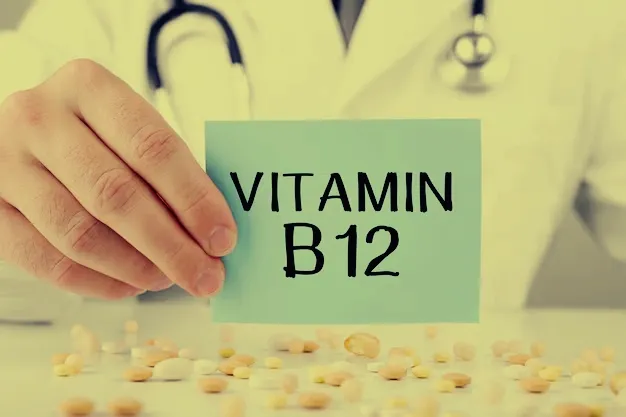Experts Confirm Safety of Cyanocobalamin; Vitamin B12 Deficiency Affects Brain, Joints, and Skin Health

Synopsis
Key Takeaways
- Cyanocobalamin is safe for human use.
- Deficiency in Vitamin B12 can lead to severe neurological problems.
- Common foods contain trace amounts of cyanide but are safe.
- Dietary sources of B12 include meat, fish, eggs, and dairy.
- Maintaining adequate B12 levels is crucial for overall health.
New Delhi, April 2 (NationPress) Amid ongoing discussions on social media regarding the potential toxicity of Cyanocobalamin, a synthetic variant of Vitamin B12, experts emphasized on Wednesday that Cyanocobalamin is safe for human consumption. They underscored the importance of this crucial vitamin associated with the health of the brain, joints, and skin.
A recent viral post on social media has sparked concerns about the safety of cyanocobalamin found in Vitamin B12 supplements. This post alleges that it is harmful due to its breakdown into cyanide, a toxic compound, and recommends the use of Methylcobalamin instead. Methylcobalamin is a natural form of Vitamin B12 that contains a methyl group.
Despite the viral nature of the post, it has raised numerous concerns, particularly considering the high levels of Vitamin B12 consumption in India.
Cyanocobalamin is a synthetic form of Vitamin B12 that includes a cyanide molecule.
This has led to misconceptions regarding the vitamin's safety, but experts confirmed that the supplement is safe for consumption.
Dr. Rajeev Jayadevan, Chairman of the Scientific Committee at IMA Cochin, stated, "Cyanocobalamin is a stable synthetic precursor of Vitamin B12, an essential vitamin. The cyanide produced during the conversion to the active form is minimal and poses no risk to humans when taken as directed; it is safely eliminated by the body."
Dr. Jayadevan also pointed out that other commonly consumed foods, such as tapioca, flaxseed, and apples, contain trace amounts of cyanide, which are harmless.
Conversely, the expert highlighted that a deficiency in Vitamin B12 could lead to severe neurological conditions, including paralysis.
According to Dr. M Wali, a Senior Consultant at a local hospital, "B12 deficiency is a significant cause of brain diseases, including brain fog, dementia, neuropathy, nerve weakness, forgetfulness, and fatigue. Its deficiency can also result in painful joints and skin issues."
Vitamin B12, also referred to as cobalamin due to its cobalt content, is vital for the creation of DNA and red blood cells. This essential vitamin also plays a role in maintaining healthy hair, nails, and skin.
Since the human body does not produce B12, it is crucial to consume animal-derived foods such as meat, fish (like salmon, tuna, and sardines), eggs, and dairy products (including milk, yogurt, and cheese), or to take supplements to meet the required intake of this essential vitamin.








